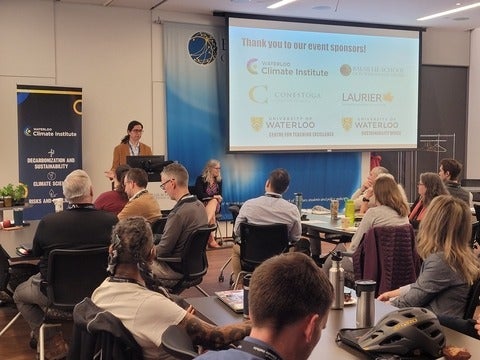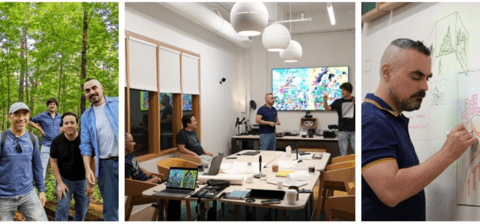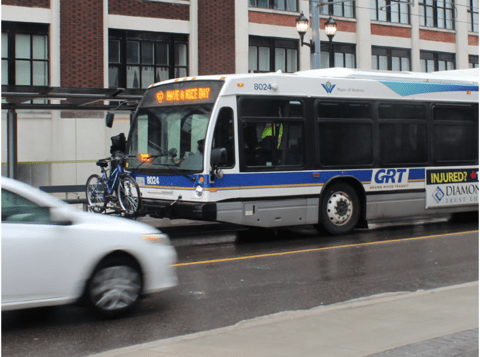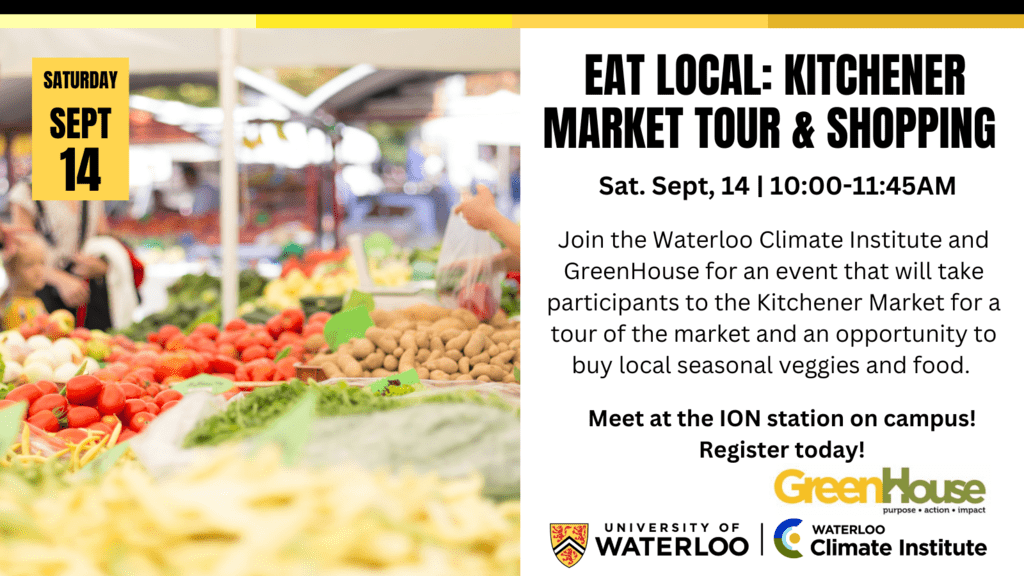The University of Waterloo Climate Institute brings together scientists and students to elevate and enhance the impact and excellence of innovative interdisciplinary research and education that empowers business, government and civil society to respond effectively to the climate crisis.
University of Waterloo’s unique combination of strengths and depth of expertise allows us to deal head-on with the complexity and interconnectedness of social, political and technological dimensions of the climate crisis.
Our expertise and focus
Our three core areas of research and innovation are developed through lenses of equity, justice, governance, and innovation to create truly impactful solutions for this existential global challenge.
News
Climate Pedagogy Symposium: Educators Unite to Advance Climate Change Education
The Climate Pedagogy Symposium brought together educators from higher education institutions across the Waterloo region to share innovative approaches to climate change education (CCE). Hosted collaboratively by the Waterloo Climate Institute at the University of Waterloo, Conestoga College, and Wilfrid Laurier University, the event facilitated discussions on decolonizing CCE, active learning strategies, reflective and reflexive teaching, interdisciplinarity, and addressing climate emotions.
A new pilot initiative combines art and disaster risk data to imagine possible futures
A project with Waterloo Climate Institute Executive Director, Sarah Burch, launched a new pilot experimental project using field research data on community disaster risk and strategies to explore visualizations of possible futures using digital design and augmented reality. The pilot will explore different facets of transformation due to global environmental change and extreme weather events.
Global, National, and local climate action reports illustrate the need for stronger action
Three reports share a snapshot of climate action and opinion at the global, national and local level. The People's Climate Vote 2024, shares insight into global opinions on climate action, while the Pembina Institute's report 'All Together Now' details climate action in Canada, and the GHG Inventory for Waterloo Region shows reductions across GHG contribuint categories.
Events
Eat Local: Kitchener Market Tour & Shopping
Join the Waterloo Climate Institute and GreenHouse for an event that will take participants to the Kitchener Market for a tour of the market and an opportunity to buy local seasonal veggies and food.









